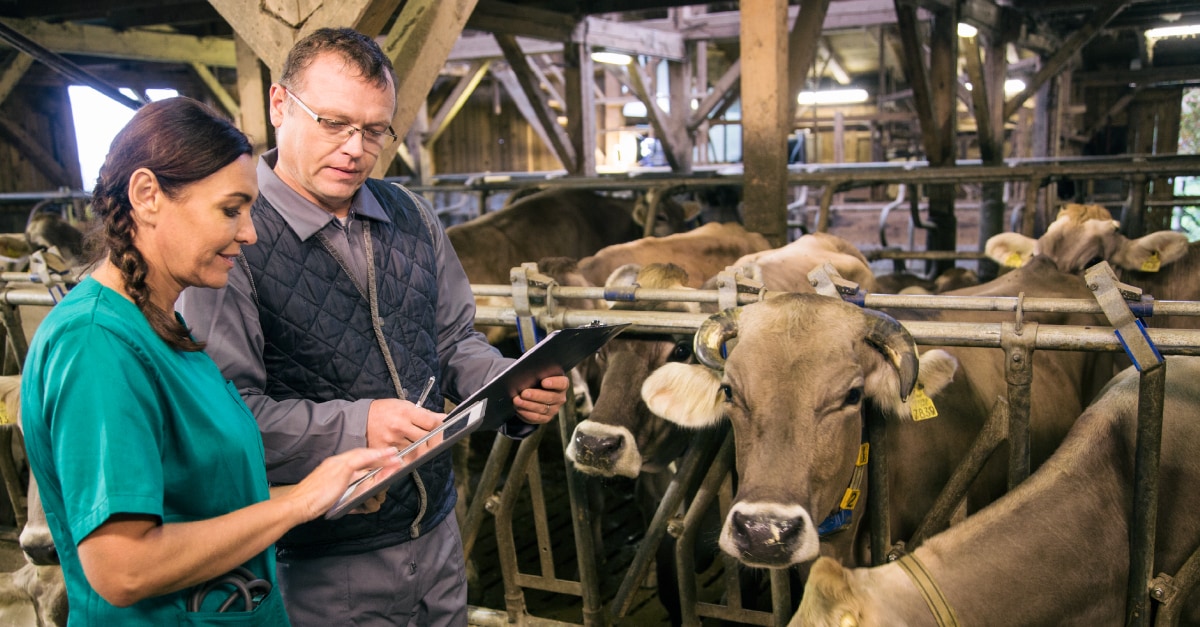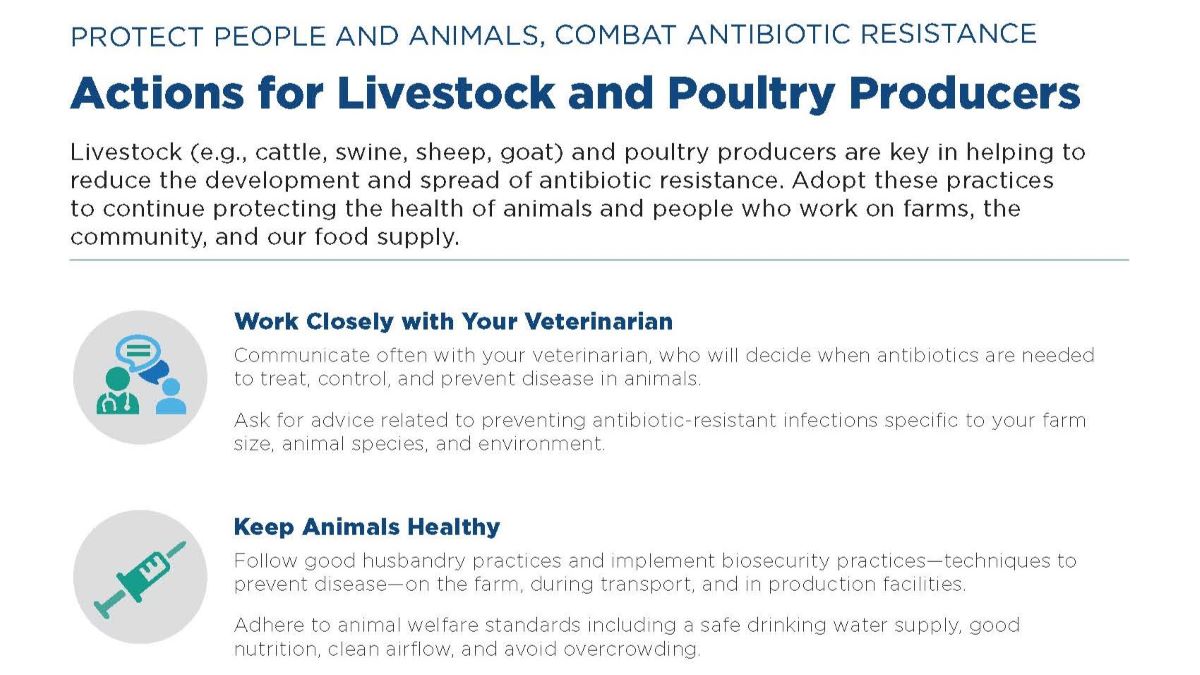Key points
- Animals carry germs in their gut, including antimicrobial-resistant germs.
- Antimicrobial-resistant germs have been identified in poultry and livestock (e.g., cattle, swine, sheep and goat) and the food they produce around the world.
- Livestock and poultry producers are key in helping to reduce the development and spread of antimicrobial resistance (AR).

Protect people and animals, combat antimicrobial resistance
Livestock and poultry producers are key in helping to reduce the development and spread of antimicrobial resistance. Adopt these practices to continue protecting the health of animals and people who work on farms, the community and our food supply.
Actions for livestock and poultry producers
Work closely with your veterinarian
- Communicate often with your veterinarian, who will decide when antibiotics and antifungals are needed and prescribe the most appropriate drug to treat, control, and/or prevent disease in animals.
- Ask for advice related to preventing antimicrobial-resistant infections specific to your farm size, animal species and environment.
Keep animals healthy
- Follow good husbandry practices and implement biosecurity practices—techniques to prevent the introduction and spread of diseases, including cleaning procedures—on the farm, during transport and in production and processing facilities.
- Adhere to animal welfare standards including a safe drinking water supply, good nutrition, clean airflow and avoiding overcrowding.
- Give veterinarian-recommended vaccinations to prevent diseases, separate sick animals right away to prevent the spread of disease, and monitor potentially exposed animals for signs of disease.
- Adopt best practices in waste management and follow manufacturer recommendations to clean equipment.
Use antibiotics and antifungals exactly as prescribed
- Follow your veterinarian's instructions on the dose (amount), duration (period of time) and route of administration (how to give the treatment to selected animals).
- Keep a record of all antibiotic and antifungal use, including dates and times, and follow up with your veterinarian about how the treatment is working.
- Safely dispose of unused or expired antibiotics and antifungals. Do not use leftover antibiotics or antifungals on other animals unless recommended by your veterinarian. Find local drug disposal programs. Never pour or flush unused drugs down drains or toilets.
Protect yourself and your workers
- Make sure farms have one toilet and handwashing station with soap and running water for every 20 workers, within a 5-minute walk of their work area. Make alcohol-based hand sanitizer (with at least 60% alcohol) available for workers, which can be used on hands that are not visibly soiled.
- Confirm workers have appropriate vaccinations and receive safety and hygiene training specific to the work they perform.
- When needed, wear and clean personal protective equipment appropriately (e.g., gloves, boots and face and breathing masks).
- Create and maintain safe and healthy work environments following OSHA's agricultural operations.
What CDC is doing
Watch an AMR Exchange webinar
In December 2021, CDC hosted an AMR Exchange webinar focusing on the use of antibiotics in animals—pets and livestock. The panel includes experts from The Ohio State University, National Institute of Antimicrobial Resistance Research and Education and EpiX Analytics.

